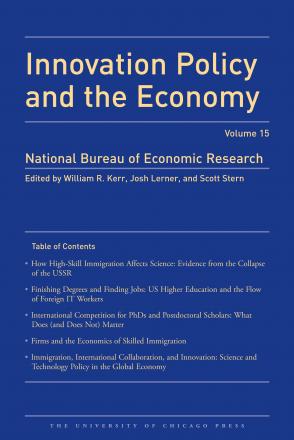How High-Skill Immigration Affects Science: Evidence from the Collapse of the USSR

You may be able to download this chapter for free via the Document Object Identifier.
A commonly cited reason for increasing high-skill immigration to the United States is the perceived positive impact that such immigrants would have on the course of US science. While it is true that scientific research is particularly important for long-term economic wellbeing, and while it is also true that immigrants have historically accounted for a disproportionate share of US scientific output, the causal impact of an increase in the number of high-skill immigrants on US science is not obvious. An influx of new knowledge and knowledge-generating workers may generate knowledge spillovers: the productivity-enhancing peer effects that must be present if high-skill immigration is to have beneficial long-run effects. However, scientists must also compete for scarce resources such as jobs, journal space, and attention, in order for their research to be produced, disseminated, and used. This paper reviews the evidence we report in recent work (Borjas and Doran 2012, 2014) that simultaneously addresses both of these conflicting forces. The research uses the "natural experiment" created by the collapse of the Soviet Union, which led to the largest sudden influx of scientific personnel and ideas into the United States since World War II. In this context, there is little evidence of improved productivity among pre-existing scientists after a sizable supply and idea shock.
-
-
Copy CitationGeorge J. Borjas and Kirk B. Doran, Innovation Policy and the Economy, Volume 15 (University of Chicago Press, 2014), chap. 1, https://www.nber.org/books-and-chapters/innovation-policy-and-economy-volume-15/how-high-skill-immigration-affects-science-evidence-collapse-ussr.Download Citation


